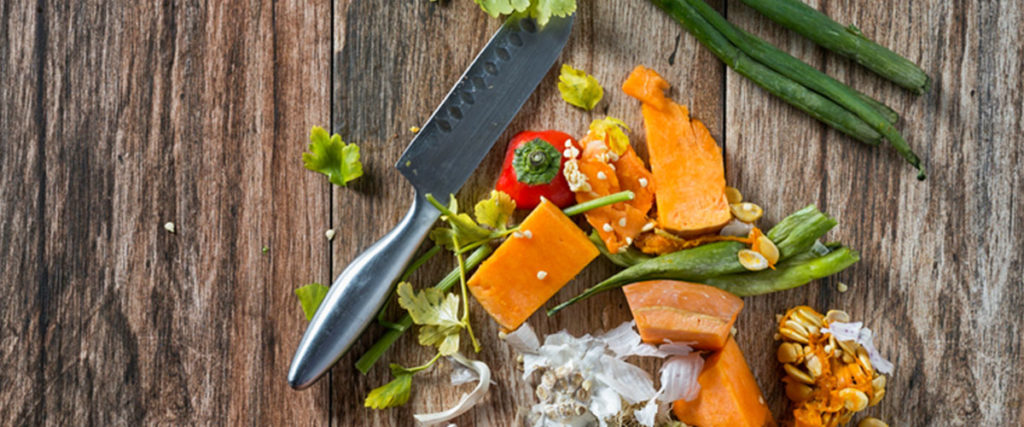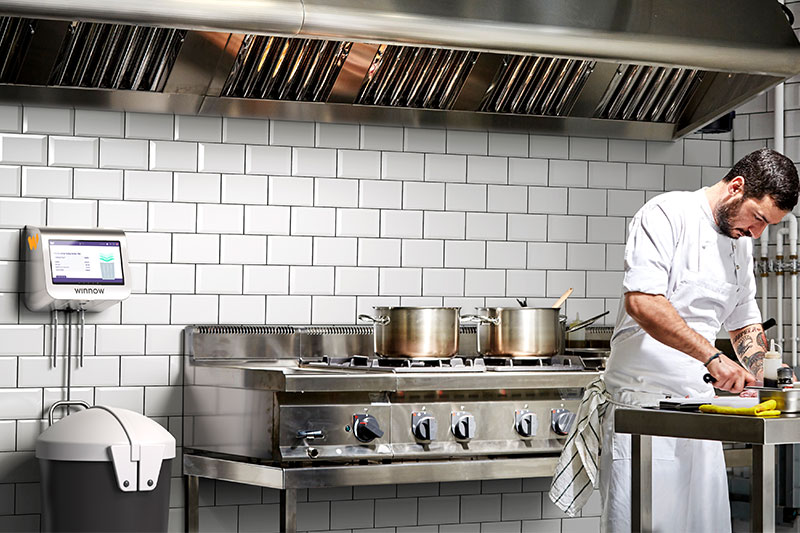With all eyes on how to tackle the global food waste problem, UK based food tech company Winnow is looking to use AI to reduce food as well as money wasted. Hive Life speaks to Marc Zornes, founder of Winnow, about how their company is looking to play their part in the big food waste picture.
With their recent US$12 million dollar Series B funding, UK-based AI food waste solutions company Winnow is looking to expand their global reach, helping chefs run more profitable, yet sustainable, kitchens. They plan to do this with their Winnow Vision camera recognition technology, which identifies food being thrown into bins, so management can literally see how much money they are pouring down the drain. Attracting clients such as IKEA and big hotel chains including Intercontinental, Pullman, Hilton and Sofitel, and with offices in Singapore, Shanghai, US, Dubai and Romania, Winnow hopes that by addressing food waste both in terms of the bottom line and sustainability, they’ll have a shot at changing how kitchens around the world work. We talked to Founder Marc Zornes about their big plans.
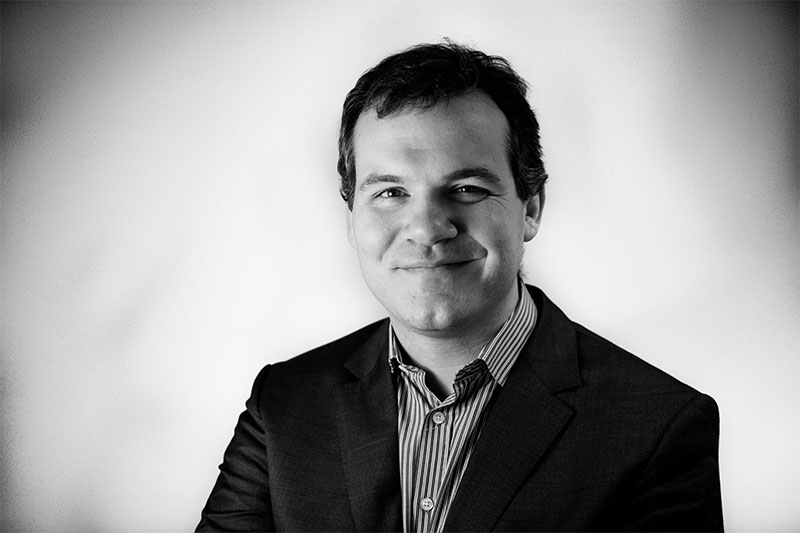
It was when he was working for the US Green Building Council, and then later McKinsey, that Marc saw an opportunity to grow in the food waste space. “I began to understand the science and the realities of where we were going as a planet. I also saw the fact that there was a real role for business to play here – there are a lot of exciting opportunities that make financial and environmental sense. While I don’t think that’s the only solution, as someone who enjoys working in business and building businesses, it’s the best way I feel I can have an impact on the problem.”
You might also like This Melbourne Food Rescue App is Tackling Australia’s AUD 20 Billion Problem
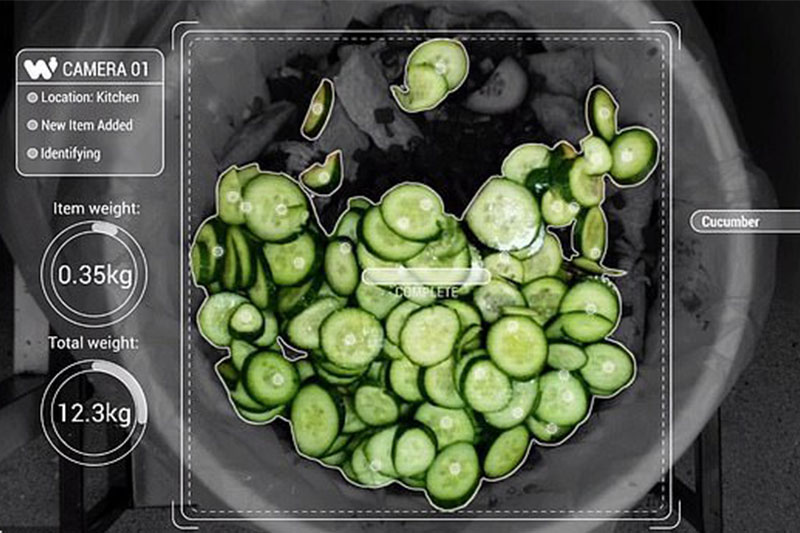
That’s why Marc and his co-founders decided to come up with an accessible tech solution that kills two birds with one stone – helping kitchens balance their books whilst doing the planet a favour by minimising food waste. “Our end goal has always been to build a fully automated system that can track all the food waste in the kitchen and make that data as powerful as possible to reduce food waste,” explains Marc. “Winnow is a computer vision-based technology. It’s effectively a camera that looks into the bin. There’s a set of scales that sits underneath that. Then, as food is thrown away, the system tries to identify those foods, put a cost on them, and give chefs information on what they can do to reduce food waste and prevent it from occurring in their kitchens.” And their impact so far? “We’re saving our clients about USD 35 million a year in food costs – anywhere between 2% to 8% of what they spend on food while delivering them a return on investment that is anywhere between 200% to 1,000% within the first year.”
A perk for Winnow’s technology is that it continuously improves and changes with every new user. “We’re building up that data set by client and customising or tweaking the model.” They do this by training the computer vision model. “You need examples of the food to train it. Let’s say that the system has never seen a pork noodle dish being done before. We know what noodles look like; we know what pork looks like. But we need to get some examples of pork noodles together into the model and train it so it can identify that specific concept before it will actually recognise it as a concept.” Once the algorithm does its work, it is validated by their team before data is sent up to the cloud where they have global recipes, enhancing their programme to make it more productive across the board. “Effectively, the more companies using Winnow Vision, the faster it gets more accurate in what it does – it’s actually more accurate at recognising the food than the staff are,” says Marc.
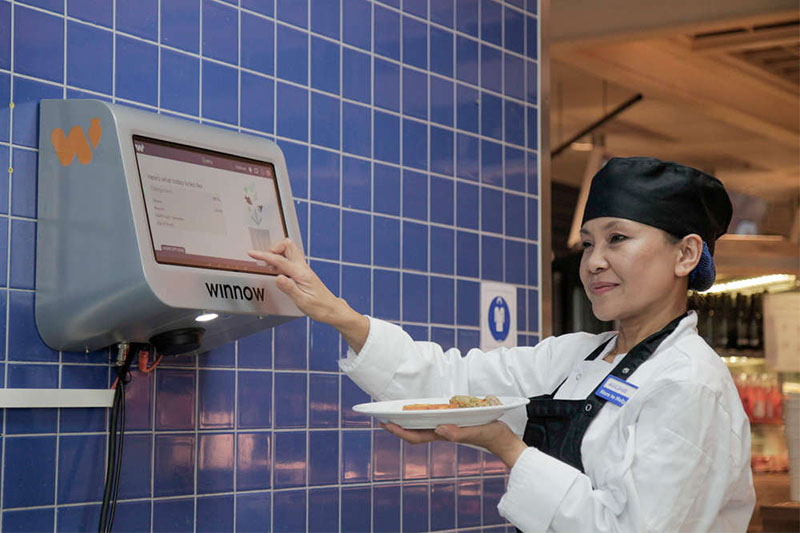
With a five-year goal to save USD 1 billion dollars of food waste by 2025, a financial marker is often used as an indicator of progress and success. “People always ask me the question of what do companies care about more: the environmental benefits or the economic benefits? It’s a combined driver of economic rationale as well as doing the right thing. When there’s something that actually solves both problems, it’s better than if it just solves one,” Marc responds. And, he sees Asia as being the next big opportunity. “We are seeing more and more focus on food waste as an issue in Asia. I’d say that in other regions, food waste is more on the mind of policymakers, if I’m frank. There isn’t the same kind of movement happening quite yet in Asia, but we’re starting to see it.” It’s all part of an irrefutable truth that hospitality teams and diners are now finally facing in restaurants around the world, and, for Marc, Winnow is only one small part of the solution. “It’s an issue that’s here to stay. We have to grapple with it. We’re going after one part of it, but we believe that there’s going to be a whole other host of solutions out there that are going to start dealing with the issue of food waste as well.”
Related Articles
Thinking Food: What You Can Do To Reduce Waste
The Scales that Save the World
Reusable Cups Aren’t the Answer. Compostable Ones Are. Here’s Why.
